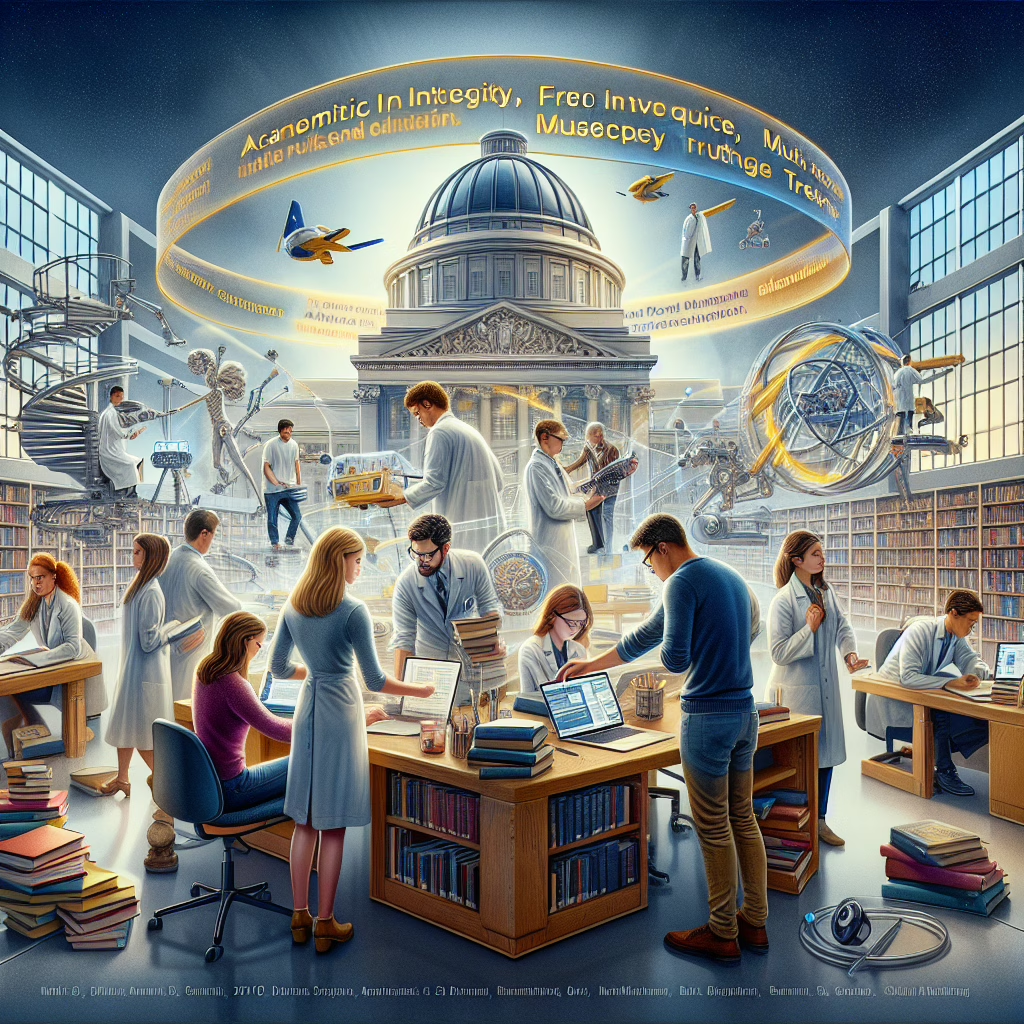In a world where research is as valuable as gold, the recent Xiaofeng Wang investigation at Indiana University highlights the challenges of maintaining academic integrity. Imagine a place where scholarly pursuits could be compared to a high-stakes game of Monopoly—everyone wants to win, but sometimes the rules get a little fuzzy. Wang’s situation serves as a reminder that navigating the murky waters of academia requires a sturdy compass and a clear moral map.
The Curious Case of Xiaofeng Wang
Xiaofeng Wang, an esteemed professor, found himself at the center of an academic storm when allegations surfaced regarding his ties to China and potential conflicts of interest. This saga raises questions about how universities balance their commitment to research integrity with international collaborations. While collaboration is crucial in academia, it can sometimes feel like inviting your neighbor over for dinner only to discover they’re allergic to everything in your pantry!
Wang’s case illustrates how scrutiny can arise not just from the content of research but also from its origins. It’s reminiscent of an episode in a sitcom where everyone suspects everyone else of plotting something nefarious. In this case, however, we aren’t talking about hijinks; we’re discussing serious implications for both Wang and the academic community.
Academic Integrity: A Global Concern
As institutions worldwide strive for innovation and discovery, maintaining academic integrity becomes paramount. The Xiaofeng Wang situation shines a spotlight on how vital it is to uphold ethical standards while collaborating across borders. Countries like the U.S. and China often find themselves in a delicate dance, balancing cooperation with caution.
On one hand, global partnerships can lead to groundbreaking discoveries and advancements; on the other hand, they can sometimes resemble an awkward first date where one party misinterprets the other’s intentions. The fallout from such misunderstandings can have long-lasting effects on research funding and international relations.
Lessons Learned from the Investigation
So, what can we learn from this ongoing investigation? Here are a few insights that might help us navigate similar situations:
- Transparency is Key: Just like in any relationship, openness can prevent misunderstandings. Researchers should be clear about their affiliations and funding sources to avoid any suspicion.
- Embrace Cultural Sensitivity: Understanding cultural differences can help foster better communication and collaboration between institutions globally.
- Institutional Support: Universities must provide robust support systems for researchers navigating complex international waters.
The Xiaofeng Wang probe serves as a cautionary tale but also offers hope for improvement in how we approach academic integrity. By learning from these situations, we can enhance our systems and ensure that future collaborations are fruitful rather than fraught with tension.
A Bright Future Ahead?
The future of academic collaboration remains bright, especially if we take these lessons to heart. With increased awareness around issues like those faced by Professor Wang, universities can create environments that promote ethical practices while still encouraging innovation. After all, who wouldn’t want to be part of an academic world where transparency reigns supreme?
As we look ahead to 2025, let’s hope that this incident propels universities worldwide toward stronger ethical frameworks. It’s time for academia to turn over a new leaf—preferably one that doesn’t come with any hidden agendas!
What do you think about the Xiaofeng Wang investigation? Do you have thoughts on how academic integrity can be improved in global collaborations? Share your insights below!
A big thank you to Wired for their original article that inspired this discussion!
For more insights into the challenges of innovation and partnerships in academia, check out our article on Samsung’s new tri-fold phone challenges or how institutions must adapt to stay relevant.

